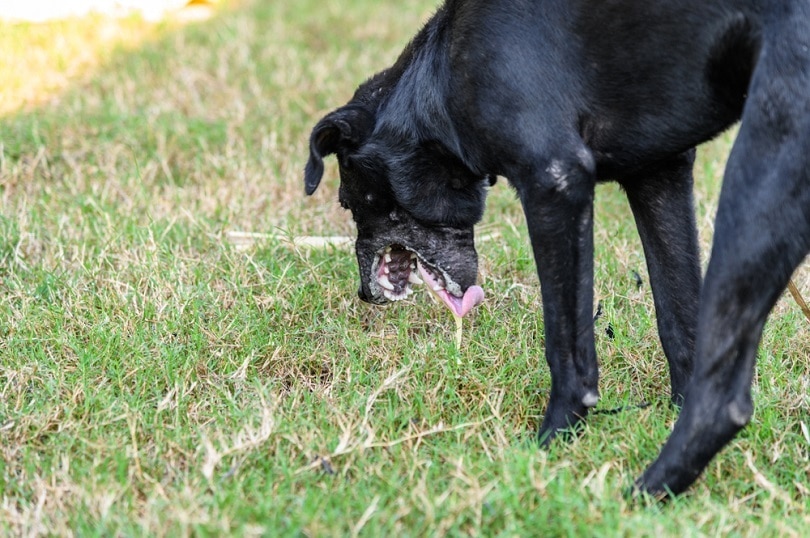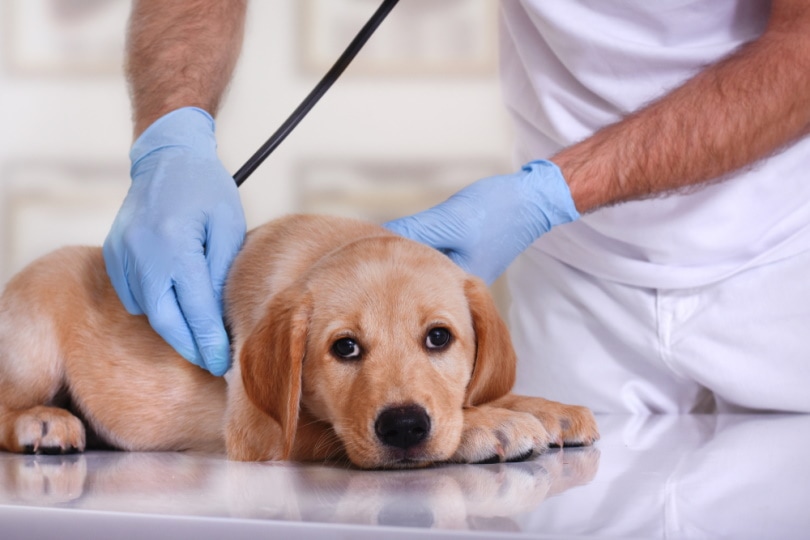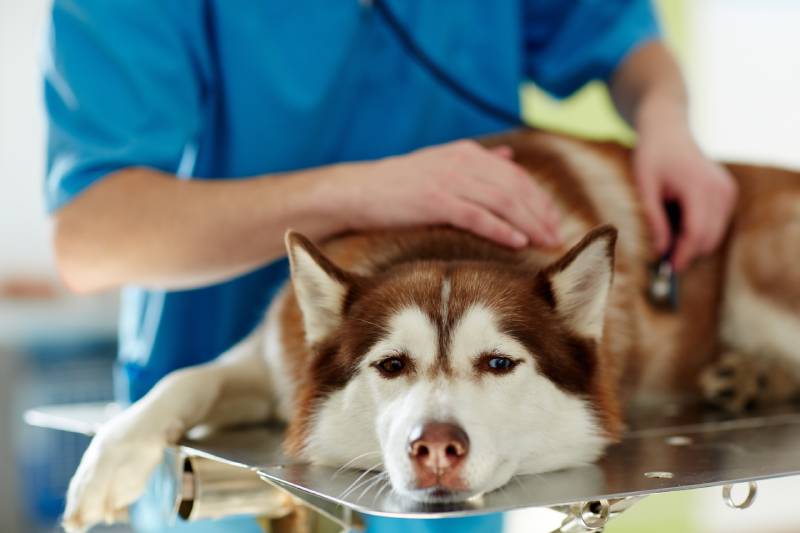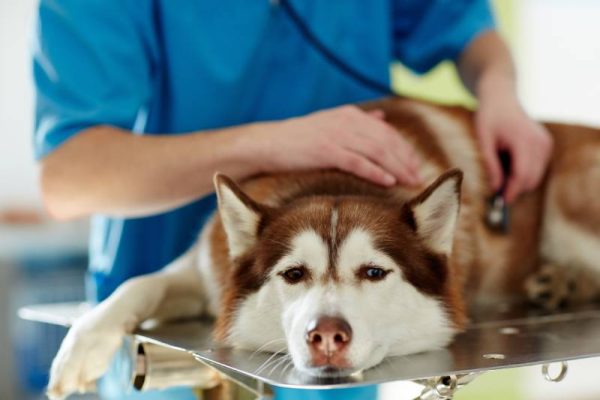Rat poison, or rodenticide, is designed to kill rats. Unfortunately, it can have the same effect on household pets, especially as it is designed to taste appealing, looks, and smells like a tasty treat to your faithful companion. There are different types of rat poison commonly used, but all can have negative effects on your dog, which is why dog owners are advised to use other methods of rodent control.
If your dog does eat rat poison, early intervention is essential, and you should contact a vet or animal hospital immediately. Although vomiting is a solution for some forms of rat poison, forcing your dog to vomit may do more harm than good with some products and depend on the timing of ingestion..
Get as many details as possible about the poison your dog has ingested, call poison control and your vet, and follow the advice they give.
What Does It Do?
Rat poison comes in different forms and each type uses different techniques to get rid of rats. The type of poison used also determines the effects it has on dogs and cats, as well as its severity and best treatments. Unfortunately, your dog may find and ingest rat poison outside the home, which means that you might not easily identify the type used. The main types of rat poison are:
- Anticoagulants – Drugs such as warfarin and bromadiolone prevent blood from clotting by preventing it from forming vitamin K. Essentially, it causes rats or pets to bleed internally. Signs your dog has eaten this kind of rat poison include bleeding from the nose or rectum, vomiting with blood in the vomit, coughing, and even some lameness as the joints fill with blood. It can take days for these symptoms to show. Your vet may induce vomiting and give vitamin K supplements and it is likely that your dog will need to be hospitalized and monitored for 48 hours. Ongoing vitamin K supplementation might be required for up to a month following your dog’s hospital discharge.
- Neurotoxins – Neurotoxins are drugs that affect the brain and nervous tissue. They include bromethalin which can lead to tremors, seizures, weakness of the limbs, vomiting, and a loss of balance. Treatments include activated charcoal. The more of the drug your dog ingested, the worse the symptoms and the more difficult it is to treat them.
- Vitamin D overdose – Rodenticides like cholecalciferol, when ingested, lead to excess free calcium in the bloodstream. Calcification of the blood constricts blood vessels and prevents the body from getting as much blood as it needs. In particular, the kidneys will not get enough blood and can stop working efficiently. Symptoms include vomiting and diarrhea, as well as increased urination and drinking. Treatment typically includes induced vomiting and being administered intravenous Your vet will need to monitor calcium levels for several weeks after ingestion.

What Can I Do?
Dogs can recover after consuming rat poison, but in all cases, early intervention is vital. As such, if you believe your dog has consumed rat poison, you should call a vet immediately and try to determine the type of poison, the amount they have eaten, and when they consumed it. Your vet will be able to recommend the next action, but this will usually involve taking them to an animal hospital or emergency vet.
Some ongoing monitoring and treatment may be required to ensure that your dog’s blood and especially calcium levels return to normal.

How to Stop Your Dog From Eating Rat Poison
Prevention is better than cure when it comes to dogs eating rat poison. If you believe you have a rat infestation, look for alternative methods to combat vermin levels, such as traps. If this doesn’t work, call professional exterminators or pest control to help combat the problem, and consider removing your dog from the premises while the poison is laid and left to do its work. Ensure that all remaining poison is removed before your dog returns.
Dogs are inquisitive, especially when it comes to food and treats. As such, some rat poison incidents occur outside the dog’s home. Rat poison is commonly laid in outbuildings and may also be put down in gardens but is rarely used in public spaces. Stick to public walks and dog parks to avoid this type of event.
Conclusion
Rat poison is designed to kill animals, and while rats are smaller than dogs, the drugs used and the levels they are used at can still prove fatal to dogs and other household pets. They should be used with caution in any home, and it is best to avoid their use at all if you do have pets.
Common signs of rat poison ingestion include vomiting and increased drinking and urination, as well as bleeding from the nose and rectum. If you do see any possible symptoms of ingestion, contact your vet immediately and follow their advice. Early intervention is key to helping ensure a swift and full recovery.
See Also:
- Will Rat Poison Kill Cats? Vet-Approved Signs, Risks, & Prevention
- Nicotine Poisoning in Dogs: Causes, Symptoms & Treatment (Vet Answer)
Featured Image Credit: Pressmaster, Shutterstock











